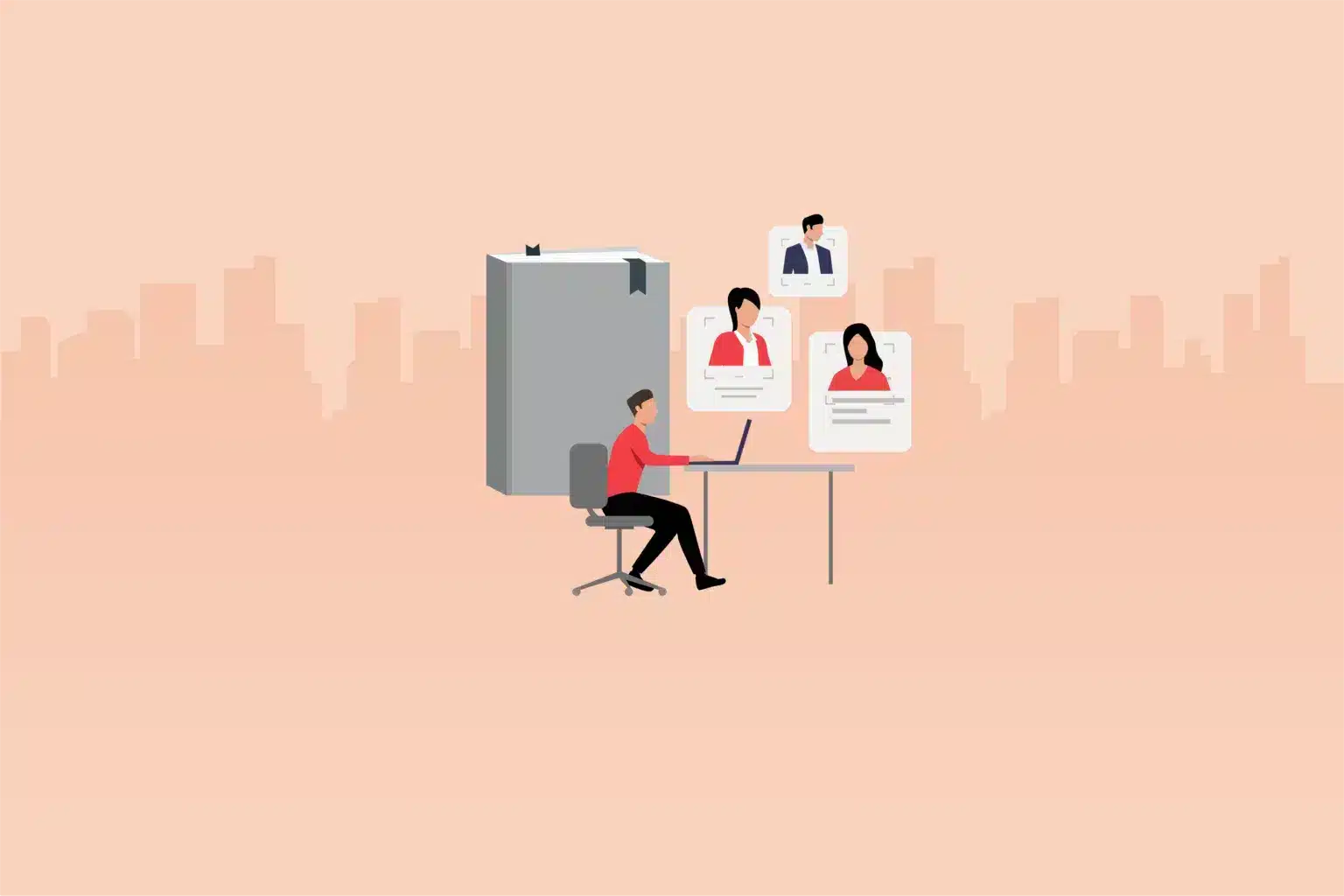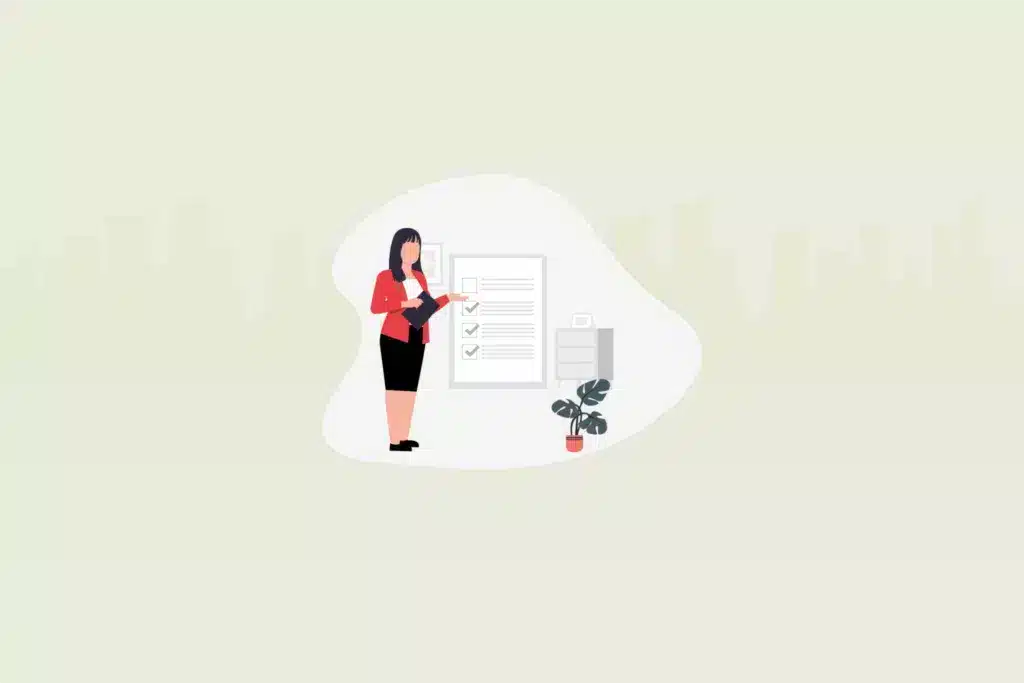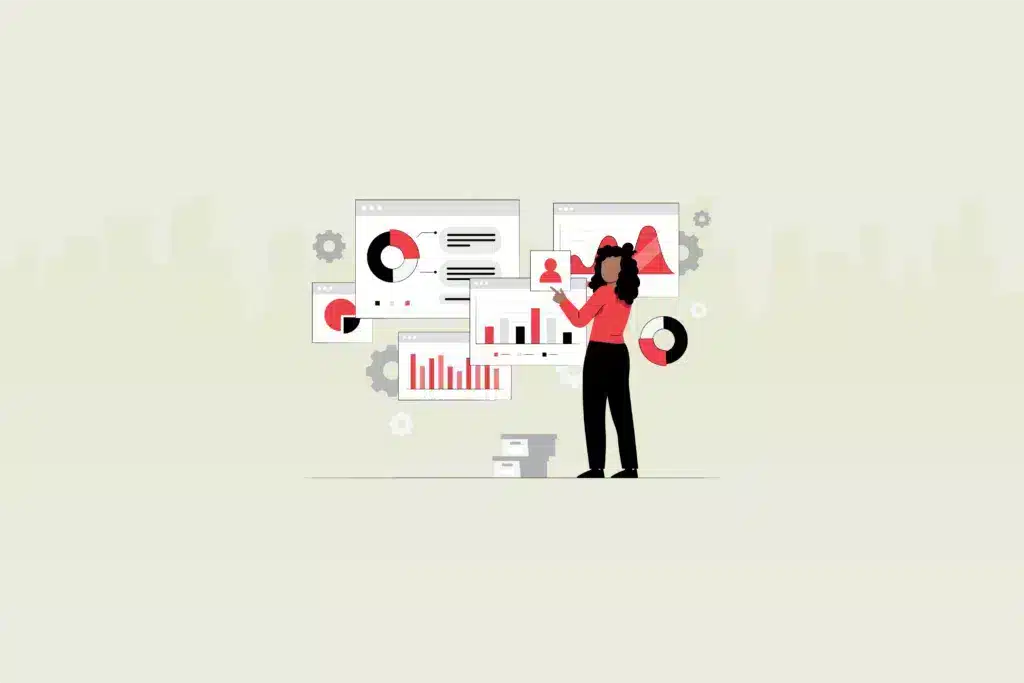The role of an Insurance Coordinator has become increasingly crucial in today’s rapidly evolving insurance landscape. As organizations navigate the ever-changing market dynamics and regulatory environment, the need for skilled professionals to manage insurance processes and ensure compliance has grown exponentially.
HR professionals and CXOs are keenly aware of the significance of recruiting talented Insurance Coordinators who possess a blend of technical expertise, organizational skills, and a deep understanding of insurance operations. According to recent analytics, the demand for Insurance Coordinators has witnessed a significant upward trend, reflecting the industry’s recognition of their vital role in optimizing insurance workflows and mitigating risk. In this context, crafting insightful interview questions becomes paramount to identifying top-tier candidates who can thrive in this dynamic and essential position.
Here are the top 60 Insurance Coordinator interview questions to ask job applicants:
15 general interview questions for the Insurance Coordinator
- Can you provide an overview of your experience in insurance coordination and your familiarity with different types of insurance policies?
- How do you stay updated on the latest trends, regulations, and changes in the insurance industry?
- Describe your process for effectively coordinating insurance claims and handling related documentation.
- How do you ensure accuracy and attention to detail when reviewing insurance policy documents and contracts?
- Can you share an example of a complex insurance claim or situation you successfully managed? How did you handle it?
- What strategies do you employ to maintain strong relationships with insurance providers, agents, and brokers?
- How do you handle challenging conversations with clients or policyholders regarding claim denials or coverage limitations?
- Explain how you prioritize and manage multiple insurance-related tasks and deadlines simultaneously.
- How do you assess risks and determine appropriate coverage levels for clients or the organization?
- Describe your approach to monitoring insurance policies for compliance with applicable laws, regulations, and internal policies.
- How do you ensure confidentiality and handle sensitive information when dealing with insurance records and claims?
- Can you provide an example of how you have effectively communicated complex insurance concepts or processes to non-insurance professionals?
- How do you evaluate and select insurance providers or carriers for the organization?
- Describe your experience with insurance audits and your role in facilitating the process.
- How do you contribute to the overall risk management strategy of an organization as an Insurance Coordinator?
5 sample answers to general interview questions for the Insurance Coordinator
- Can you provide an overview of your experience in insurance coordination and your familiarity with different types of insurance policies?
Look for: Candidates who demonstrate a solid understanding of insurance coordination and are familiar with various types of insurance policies.
Sample answer: “I have been working as an Insurance Coordinator for the past five years, where I have gained extensive experience in managing insurance processes and policies. I am well-versed in property insurance, liability insurance, health insurance, and automobile insurance. This experience has allowed me to develop a comprehensive understanding of policy coverage, claims procedures, and the nuances of different insurance types.”
- How do you stay updated on the latest trends, regulations, and changes in the insurance industry?
Look for: Candidates who emphasize their proactive approach to staying informed about industry trends, regulations, and updates.
Sample answer: “I understand the importance of staying up to date with the ever-changing insurance landscape. I actively engage in industry publications, attend relevant conferences and seminars, and participate in professional networks. Additionally, I leverage online resources, subscribe to newsletters from regulatory bodies, and actively participate in continuing education programs to ensure that I am well-informed about the latest trends, regulations, and changes in the insurance industry.”
- Describe your process for effectively coordinating insurance claims and handling related documentation.
Look for: Candidates who can articulate a structured and efficient approach to managing insurance claims and related documentation.
Sample answer: “When coordinating insurance claims, I follow a systematic process to ensure accuracy and efficiency. First, I gather all necessary documentation from the insured party, ensuring that all required information is complete and accurate. Next, I review the policy terms and conditions to determine the coverage and assess the validity of the claim. I then collaborate with the insurance provider, providing all relevant documentation and facilitating communication between the insured party and the insurer. Throughout this process, I maintain meticulous records, track claim progress, and provide timely updates to all stakeholders involved.”
- How do you ensure accuracy and attention to detail when reviewing insurance policy documents and contracts?
Look for: Candidates who emphasize their strong attention to detail and their ability to identify errors or inconsistencies in insurance policy documents.
Sample answer: “Accuracy and attention to detail are essential when reviewing insurance policy documents and contracts. I approach this task with a methodical mindset, thoroughly examining each clause, provision, and condition to identify any errors, inconsistencies, or potential coverage gaps. I pay close attention to numerical values, effective dates, and specific language used in the policies. I also cross-reference policy documents with applicable regulations and industry standards to ensure compliance. Additionally, I maintain meticulous documentation of any amendments or endorsements to the policies, providing a comprehensive record of all policy-related changes.”
- Can you share an example of a complex insurance claim or situation you successfully managed? How did you handle it?
Look for: Candidates who can provide a specific example of a challenging insurance claim or situation they effectively resolved, highlighting their problem-solving skills and ability to navigate complexities.
Sample answer: “In a previous role, I encountered a complex liability insurance claim involving multiple parties and disputed coverage limits. To address this challenge, I conducted a thorough investigation, gathering evidence and statements from all relevant parties involved. I collaborated closely with legal counsel and engaged in negotiations with the insurance provider to ensure a fair resolution. Through diligent documentation, clear communication, and the ability to navigate intricate policy language, I successfully facilitated a settlement that satisfied all parties and minimized potential liabilities for my organization.”
15 behavioral interview questions for an Insurance Coordinator
- Tell me about a time when you had to handle a difficult client or policyholder. How did you manage the situation and ensure their satisfaction?
- Describe a time when you identified a gap or inefficiency in insurance processes. How did you address it, and what was the outcome?
- Can you share an example of a time when you had to prioritize multiple insurance tasks with competing deadlines? How did you manage your time and ensure all tasks were completed effectively?
- Tell me about a challenging insurance claim you worked on. How did you gather the necessary information and navigate the complexities to ensure a successful resolution?
- Describe a situation where you had to negotiate with an insurance provider or agent to obtain the best possible coverage or terms for your organization or client. What strategies did you employ?
- Tell me about a time when you had to communicate complex insurance concepts or policies to someone who had limited knowledge in the field. How did you ensure they understood the information?
- Describe a situation where you had to make a difficult decision regarding insurance coverage or claim approval. How did you approach the decision-making process, and what factors did you consider?
- Can you share an example of a time when you identified potential risks or gaps in insurance coverage for a client or organization? How did you address these concerns and mitigate the risks?
- Tell me about a time when you had to work collaboratively with other departments or teams to ensure seamless insurance operations. How did you foster effective communication and cooperation?
- Describe a situation where you had to handle sensitive or confidential information while managing insurance claims or policies. How did you ensure data security and confidentiality?
- Can you share an example of a time when you had to adapt to changes in insurance regulations or policies? How did you stay informed and ensure compliance within your role?
- Tell me about a time when you had to resolve a dispute or disagreement related to insurance coverage or claim settlement. How did you approach the situation and reach a resolution?
- Describe a situation where you had to handle a high volume of insurance claims or policies simultaneously. How did you stay organized and ensure accuracy throughout the process?
- Can you share an example of a time when you had to handle an insurance audit? How did you prepare for the audit and ensure compliance with the audit requirements?
- Tell me about a time when you had to adapt to a new insurance software or system. How did you familiarize yourself with it, and what challenges did you encounter during the transition?
5 sample answers to behavioral interview questions for the Insurance Coordinator
- Tell me about a time when you had to handle a difficult client or policyholder. How did you manage the situation and ensure their satisfaction?
Look for: Candidates who demonstrate strong interpersonal and customer service skills, showcasing their ability to handle challenging situations with professionalism and empathy.
Sample answer: “In a previous role, I encountered a difficult client who was dissatisfied with the claim settlement process. I actively listened to their concerns and empathized with their frustrations. I patiently explained the steps involved in the claim process, provided regular updates on the status, and promptly addressed any issues or questions they had. By maintaining open lines of communication, actively engaging in problem-solving, and ensuring transparency throughout the process, I was able to resolve their concerns and achieve a satisfactory outcome.”
- Describe a time when you identified a gap or inefficiency in insurance processes. How did you address it, and what was the outcome?
Look for: Candidates who demonstrate critical thinking and problem-solving skills, highlighting their ability to identify and address process improvements.
Sample answer: “While reviewing our insurance processes, I noticed a significant time delay in claim settlements due to excessive manual paperwork. To address this inefficiency, I proposed the implementation of a digital document management system that would streamline document storage, retrieval, and processing. I conducted research, prepared a cost-benefit analysis, and presented my findings to management. Upon approval, I led the implementation process, trained team members, and monitored the results. As a result, claim processing time was reduced by 30%, improving overall efficiency and customer satisfaction.”
- Can you share an example of a time when you had to prioritize multiple insurance tasks with competing deadlines? How did you manage your time and ensure all tasks were completed effectively?
Look for: Candidates who demonstrate strong organizational and time management skills, showcasing their ability to handle multiple tasks simultaneously.
Sample answer: “In my previous role, I often faced situations where I had to handle multiple insurance tasks with tight deadlines. To effectively manage my time, I created a prioritization system based on urgency, complexity, and potential impact. I utilized task management tools to track progress and set reminders. I also communicated with stakeholders proactively, providing regular updates on the status of their tasks. By leveraging effective time management techniques, such as delegation, setting realistic expectations, and utilizing efficient workflows, I consistently met deadlines and ensured all tasks were completed accurately and on time.”
- Describe a situation where you had to negotiate with an insurance provider or agent to obtain the best possible coverage or terms for your organization or client. What strategies did you employ?
Look for: Candidates who demonstrate strong negotiation and communication skills, highlighting their ability to advocate for their organization or clients’ best interests.
Sample answer: “During a renewal negotiation with an insurance provider, I thoroughly researched market trends, competitive rates, and our organization’s risk profile. Armed with this information, I engaged in collaborative discussions with the provider, highlighting our organization’s positive claims history, risk mitigation efforts, and other factors that positioned us favorably. I maintained open lines of communication, actively listened to the provider’s concerns, and proposed win-win solutions. By building a strong relationship based on trust and demonstrating the value we brought as a client, I successfully negotiated improved coverage terms and obtained a cost-effective insurance package.”
- Tell me about a time when you had to adapt to changes in insurance regulations or policies. How did you stay informed and ensure compliance within your role?
Look for: Candidates who demonstrate adaptability, a proactive approach to staying updated, and a commitment to compliance.
Sample answer: “In my previous role, I encountered a significant regulatory change that impacted our insurance policies. To stay informed, I actively engaged in industry webinars, attended seminars hosted by regulatory bodies, and subscribed to relevant newsletters. I established a network of contacts within the industry, including insurance associations and experts, who provided insights and updates on regulatory changes. I collaborated with the legal and compliance teams within my organization to ensure a thorough understanding of the new requirements. I then led the implementation of necessary policy updates, communicated the changes to stakeholders, and conducted training sessions to ensure compliance across the organization.”
15 personality interview questions for the Insurance Coordinator
- How do you handle working under pressure and meeting tight deadlines in the insurance industry?
- Describe a situation where you had to adapt to unexpected changes or challenges in your work as an Insurance Coordinator. How did you respond?
- How do you approach building and maintaining professional relationships with insurance providers, agents, and clients?
- What motivates you to continuously improve your knowledge and skills in the insurance field?
- Describe a time when you had to make a difficult decision that involved balancing the needs of the organization and the interests of clients or policyholders. How did you navigate this situation?
- How do you handle conflicts or disagreements within a team or with colleagues in the insurance industry?
- Describe your approach to staying organized and managing multiple tasks and priorities as an Insurance Coordinator.
- How do you ensure accuracy and attention to detail when handling complex insurance documents and policies?
- Describe a situation where you had to explain insurance concepts or policies to someone with limited knowledge in the field. How did you adapt your communication style to ensure understanding?
- How do you stay updated on industry trends, changes in regulations, and emerging risks in the insurance field?
- Describe a time when you had to take ownership and lead a project or initiative related to insurance coordination. How did you approach it?
- How do you maintain confidentiality and handle sensitive information in your role as an Insurance Coordinator?
- Describe a situation where you had to navigate competing priorities or conflicting demands in your insurance work. How did you manage them?
- How do you ensure that your insurance coordination practices comply with legal and regulatory requirements?
- Describe a time when you had to exercise flexibility and adaptability in your approach to insurance coordination. How did you handle it?
5 sample answers to personality interview questions for Insurance Coordinator
- How do you handle working under pressure and meeting tight deadlines in the insurance industry?
Look for: Candidates who can effectively manage stress, prioritize tasks, and meet deadlines without compromising quality.
Sample answer: “I thrive in fast-paced environments and am accustomed to working under pressure in the insurance industry. When faced with tight deadlines, I prioritize tasks based on urgency and importance, ensuring that critical items are addressed first. I maintain open lines of communication with stakeholders, providing regular updates on progress and managing expectations. I also leverage time management techniques, such as setting realistic milestones and breaking down complex tasks into manageable steps. By staying organized, focused, and proactive, I am able to meet deadlines while maintaining the quality and accuracy of my work.”
- How do you approach building and maintaining professional relationships with insurance providers, agents, and clients?
Look for: Candidates who demonstrate strong interpersonal skills, relationship-building abilities, and a customer-centric approach.
Sample answer: “Building and maintaining professional relationships is crucial in the insurance industry. I approach this by fostering open and transparent communication with insurance providers, agents, and clients. I actively listen to their needs, concerns, and feedback, and strive to provide prompt and personalized assistance. I emphasize trust, reliability, and responsiveness in my interactions, ensuring that all parties feel valued and supported. By establishing strong relationships based on mutual respect and understanding, I can effectively negotiate, advocate for clients’ interests, and collaborate with stakeholders to achieve positive outcomes.”
- How do you ensure accuracy and attention to detail when handling complex insurance documents and policies?
Look for: Candidates who have a meticulous approach to their work, demonstrate attention to detail and prioritize accuracy in handling complex insurance documents.
Sample answer: “Accuracy and attention to detail are paramount when dealing with complex insurance documents and policies. I employ a systematic approach that involves carefully reviewing and cross-referencing all information to ensure consistency and correctness. I pay close attention to numerical data, policy terms, and legal language, verifying the accuracy of all information before processing. I maintain meticulous documentation, double-check my work, and leverage technology tools, such as spell-checkers and document comparison software, to minimize errors. By upholding a high standard of accuracy, I mitigate risks and ensure compliance with policy terms and regulations.”
- How do you approach conflicts or disagreements within a team or with colleagues in the insurance industry?
Look for: Candidates who can handle conflicts diplomatically, demonstrate effective communication skills and promote collaborative problem-solving.
Sample answer: “In the insurance industry, conflicts and disagreements can arise, and it’s important to address them constructively. I approach conflicts by actively listening to all parties involved, seeking to understand their perspectives and concerns. I maintain professionalism, treating all individuals with respect and empathy. I promote open and honest communication, encouraging a safe space for dialogue. When resolving conflicts, I focus on finding common ground and seeking mutually beneficial solutions. By fostering a collaborative environment, I aim to transform conflicts into opportunities for growth, understanding, and strengthening relationships.”
- How do you ensure confidentiality and handle sensitive information in your role as an Insurance Coordinator?
Look for: Candidates who demonstrate a strong sense of ethics, professionalism, and the ability to handle confidential information with care.
Sample answer: “Confidentiality is a fundamental aspect of my role as an Insurance Coordinator. I approach this responsibility with the utmost seriousness and adhere to strict privacy protocols. I am familiar with industry regulations regarding data protection and confidentiality. I exercise caution when handling sensitive information, both in physical and electronic formats. I ensure that access to confidential data is limited to authorized individuals only, and I employ secure communication channels when sharing sensitive information. I maintain strict documentation practices, including proper storage and disposal of confidential documents. By prioritizing confidentiality, I instill trust among clients, colleagues, and stakeholders, demonstrating my commitment to maintaining the highest ethical standards.”
When should you use skill assessments in your hiring process for Insurance Coordinator?
Skill assessments should be used in the hiring process for an Insurance Coordinator when there is a need to evaluate specific job-related skills and competencies that are critical for success in the role. Assessments are important because they provide objective and standardized measures of an individual’s abilities, allowing employers to make informed hiring decisions based on actual skills rather than relying solely on resumes or interviews.
In the case of an Insurance Coordinator, assessments can be used to evaluate skills such as attention to detail, analytical thinking, problem-solving, communication, multitasking, and proficiency with insurance software or systems. These assessments can include practical exercises, case studies, or simulations that simulate real-life situations an Insurance Coordinator would encounter in their day-to-day responsibilities.
Additionally, assessments such as cognitive ability tests and data entry accuracy tests can help evaluate the candidate’s cognitive abilities, numerical reasoning, and accuracy in handling insurance-related data. These assessments provide valuable insights into the candidate’s aptitude for processing complex information and performing tasks accurately and efficiently.
By incorporating skill assessments in the hiring process for an Insurance Coordinator, employers can ensure that they are selecting candidates with the necessary skills and competencies to excel in the role. It helps identify the candidates who are best suited for the demands of the position, leading to better hiring decisions and increased productivity within the insurance team.
Use our interview questions and skill tests to hire a talented Insurance Coordinator
Unlock the potential of your hiring process with Testlify’s comprehensive skill assessments and interview questions specifically designed for Insurance Coordinators.
Our extensive test library offers a wide range of assessments, including cognitive function, personality, situational judgment, programming, and more. By leveraging these assessments, you can objectively evaluate candidates’ abilities, ensuring you shortlist the most talented individuals efficiently.
To further enhance your hiring process, we invite you to book a free 30-minute live demo. Our expert team will guide you through the platform, showcasing relevant skill tests tailored to your hiring needs. With our support, you can streamline candidate selection, saving valuable time and resources.
Ready to find the perfect fit for your Insurance Coordinator role? Testlify provides the tools you need to make informed hiring decisions. Explore our skill assessments and interview questions today to uncover exceptional talent for your team.








